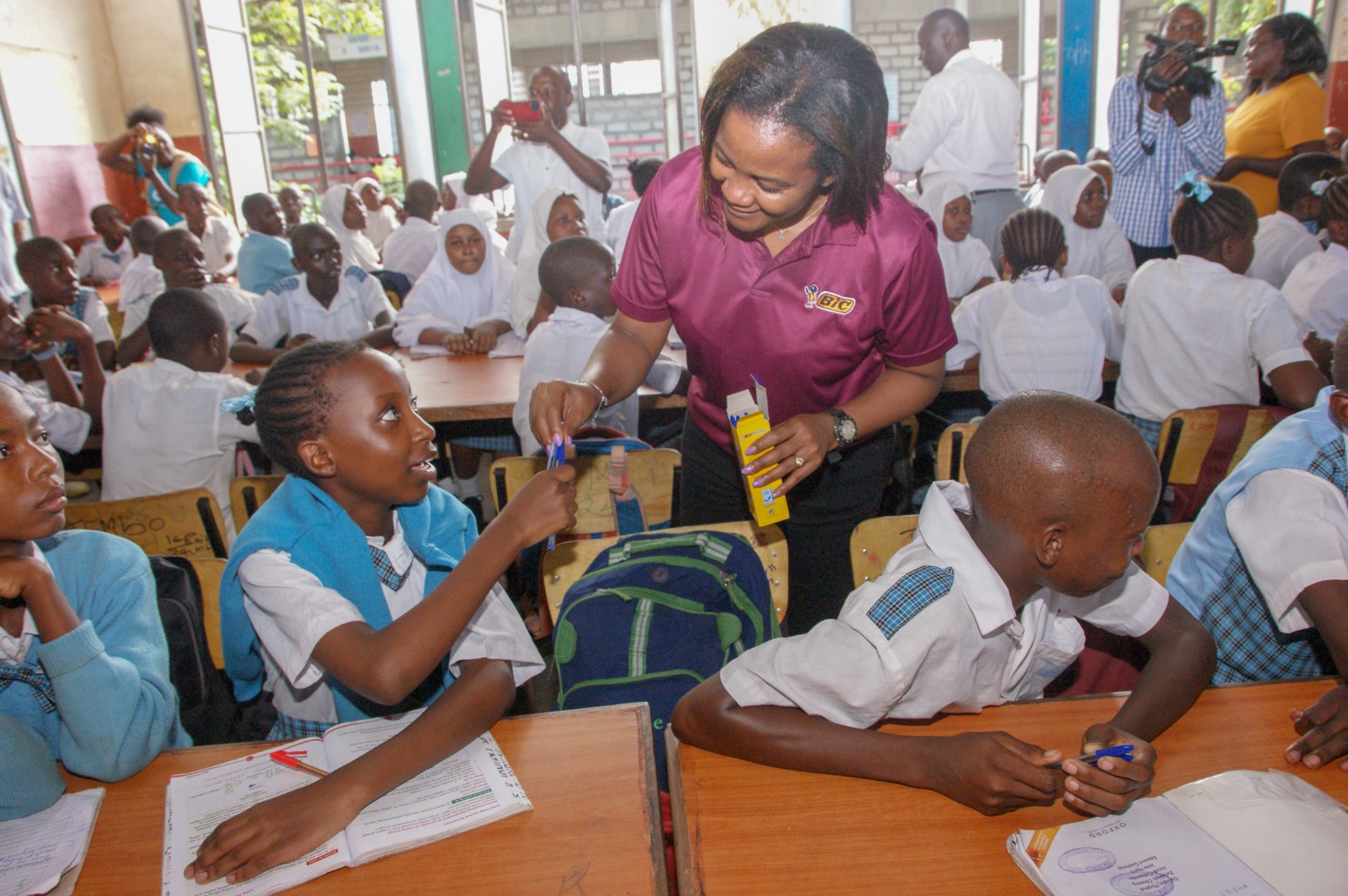Despite its status as a modern model school, Mikindani Comprehensive School in Mombasa continues to grapple with significant challenges typically encountered by institutions in slums and informal settlements.
The school, which is close to the Bangladesh slum, and populous Mikindani and Allidina areas west of Mombasa, has more than 2,000 students.
A few years ago, the school got funding from the German government that put up the infrastructure and upgraded the facility to a model school.
The school headteacher, Peninah Muthuuri, said the school has grown, but most pupils come from needy families.
“Most of the pupils here stay hungry. We support them in clothing because most of their families cannot afford it, and they live from hand to mouth,” said Muthuuri.
Speaking during the BIC’s pen donation drive at Mikindani Primary School, where she noted that most of her students lack learning and writing materials.
“Sometimes, the students do not have anything to write with, instead of using pens, they use pencils. Unless the teacher buys for them a pen, they struggle,” she said.
BIC East Africa Marketing Manager Salome Ngugi said the initiative to give pens to schools stems from their commitment to improving learning conditions for 250 million students by 2025.
“So far, in Kenya, we have been able to give out 1.4 million pens and we have been able to impact more than 750,000 students,” said Ngugi.
She said Mikindani Comprehensive School was their fifteenth school this year.
“Our aim is usually to reach all the needy students from all the counties across the country. The reason we give out pens is because we realized that if a child does not have a writing instrument, it affects their performance in school,” said Ngugi.
She said they may not be able to sort out all the issues that the students go through, but at least providing pupils with the writing instruments can be part of the solution.
“In terms of selecting schools, we work with organizations that have the same vision and mission and for this year, we are working in collaboration with CFK and it’s through these NGOs that we can identify the schools where we have pupils who need writing instruments,” she said.
CFK Africa Project Education Manager, Joshua Omweno said education is one of the most effective tools in addressing poverty.
“We’ve come to Mikindani Primary School to help support, in addressing this by sharing material support, which is one of the most important issues that negate student success,” said Omweno.
He said CFK Africa has established through their research that when learners are supported to access quality education, then they come to school and stay in school.
CFK Africa is present in eight counties in Kenya, working in 25 informal settlements and targets over 32,000 learners to have access to quality education.
“We offer interventions such as scholarships, girls’ empowerment, and value-based sports, where we use sports as a tool for social cohesion and peacebuilding. We also provide health services ranging from clinical health services, and maternal child health,” he said.





